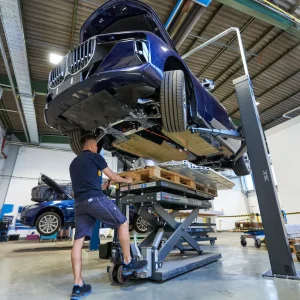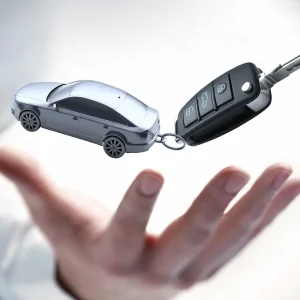The past two years have seen strong numbers for the leasing industry, as fleets grew by 7.5% and 5.6% in 2014 and 2013 respectively, but this hasn’t stopped leasing companies from expanding by a substantial 4.7% in 2015, according to BusinessCar’s annual BC50 analysis of the segment.
Accounting for just over half of the car market, fleet and business registrations are up by 11.5% on 2014 – with 1,117,292 models finding homes over the first nine months of the year, according to the SMMT – showing that there is no sign of the car market growth slowing.
Van registration figures have grown by an even greater amount, hitting 284,161 – a rise of 17.4% – compared with the same period last year.
The industry has seen a busy year, with Arval purchasing GE Capital, Enterprise buying Burnt Tree to create Enterprise Flex-e-Rent,and Kier Group’s leasing and vehicle management operation being acquired by a private equity firm (it now appears on our list as Essential Fleet Services), while several others stopped their leasing operations completely. This means that there are a handful of new names on this year’s BC50 while several more familiar ones no longer feature.
The company that grew the most jumped in size by a whopping 83.5%, which has catapulted it up the rankings, while the one that shrank the most dropped in size by 15.6%.
And these aren’t one-off figures, with more than a dozen gaining double-digit growth and just four dropping by a similar percentage.
Explaining his company’s success, Richard Schooling, chief executive of number three performer Alphabet – which is growing at a faster rate than the top two companies – says: “We’ve seen sustained growth in both our major corporate and public sector customers, as well as strong performance in the SME market via our broker sales channel, Alphabet Partner, which celebrated its first anniversary in September.”
Similarly, ALD Automotive marketing director David Yates cites the SME sector as the key driver of growth, along with new investment: “We have invested considerably within our IT systems, which has not only benefited our corporate customers but has enabled our key business partners to transact increasing levels of business with ALD more efficiently.”
Yates also credits growing business confidence for ALD’s growth – with it seeing double-digit growth for the past six years – but adds: “This has surprisingly been a relatively small factor in our growth over the last 12 months”.
This year has also seen Alphabet continue to develop into corporate car sharing with its AlphaCity service, while offering an extended rental vehicle fleet. Reflecting British Vehicle and Rental and Leasing Association chairman Gerry Keaney’s thoughts on how the industry is moving away from inflexible leasing options, Schooling highlights that Alphabet no longer solely offers traditional three-year contract hire agreements.
The company also now offers a greater number of EVs, with BMW i3 models having been accessed by nearly 2000 users and covering more than 430,000 miles in 2015 so far. Similarly, Alphabet has received in excess of 1500 orders for electric vehicles from SME, public sector and corporate customers in 2015, reflecting the increased uptake of low-emission vehicles.
Arval is about to make a jump into a potential second place with the acquisition of GE Capital’s fleet business due for completion during the final quarter of 2015.
Meanwhile, the firm is partly putting its increased fleet size down to the greater number of tools it now offers alongside its fleet. Peter Leavy, product manager, says: “It has certainly been a productive period for Arval, with the introduction of our new reporting tools for customers and smartphone apps for drivers, demonstrating our commitment to supporting drivers as well as our customers.”
In addition, the introduction of a new website has made it easier for potential customers to source quotes across the whole range of Arval vehicles, while the company stresses it has also boosted the number of electric and hybrid vehicles now on offer, giving it more appeal to fleets focused on cutting their environmental impact.
Leavy is also expecting growth in 2016, with several new services on offer: “The introduction of our new salary-sacrifice product, as well as Arval Active Link, our new telematics offering, means we already have exciting new options for our customers to benefit from in 2016.
“We will continue to listen to our customers and invest in new technologies to ensure we offer industry-leading products and services and continue to grow.”
Similarly, Citroen puts much of its growth over the past year down to strong customer service, with head of Citroen Contract Motoring, James Birch, stating: “There is confidence from the network that we are competitive from month to month and we therefore benefit from a significant amount of referrals and repeat business.”
He stresses that CCM has also been able to compete better thanks to greater promotion of its financial products and services, after sending staff to training seminars, while quality of product has also played a part: “We have also worked closely with Citroen UK to identify the correct models to focus on.”
Click the ‘next’ button to see the results.


Figures explained: This year’s winners and losers
This year’s BC50 table sees the biggest companies growing their fleets, and several of those in the middle shrinking in size, with a handful of other mid-table performers growing by more than 25%.
Such strong numbers mean good news for leasing companies, and all of the top six in this year’s table have shown impressive growth, increasing their fleets by up to 19% – no mean feat for businesses that all had more than 90,000 vehicles on their books last year.
With the companies placed in fourth to sixth showing double-digit growth, outpacing the companies on this year’s BC50 podium, we could be in for a shake-up at the top of the leasing charts over the next few years. Despite this, Lex Autolease has held on to its position at the top of the pile, with a fleet size of 307,300 representing a 6.1% increase over 2014’s figure of 289,517.
Leaseplan, meanwhile, has seen a 5.4% rise, with its fleet now extending to 147,276 vehicles. Closing in on Leaseplan, however, with a rate of growth of 7.9% is Alphabet, which wades in with a 2015 fleet size of 140,460 vehicles – consisting of many more cars than Leaseplan but fewer LCVs. Fourth spot, as in 2014, is taken up by ALD Automotive, with its 11.3% growth rate keeping it ahead of Volkswagen Financial Services and Arval.
VW Financial Services, however, has managed to leapfrog Arval – just – chalking up a total of 110,393 vehicles compared with 110,324 for the latter company – an increase of 19.2%.
Last year, we reported that VW Financial Services had the ambition of becoming the UK’s third-largest leasing company, ahead of Alphabet, before the end of the decade, and following a 31% increase in 2014 this could become a reality. We contacted VW Financial Services for a comment on how the company had managed to pull off such impressive growth, but in the wake of the emissions scandal Volkswagen is embroiled in, it declined to comment.
Looking at the car/LCV split, however, it appears that most of its growth has come from cars – something that could potentially be hit by the emissions scandal, as VW’s credibility plummets following its lethargic response to the media and customers alike as to how UK cars are affected, whether they break any EU laws, and what modifications will be needed to address any issues.
Arval is likely to pass VW next year though, with the acquisition of GE Capital’s leasing volume propelling it into a possible second place.
Other companies that performed well in this year’s chart include Citroen Contract Motoring, which increased in size by 17.5%, Tusker, which grew by 28%, and Carillion Fleet Management, whose fleet mushroomed in size by 40.6%. Meanwhile, FCA Group chalked up an extremely impressive 83.5% fleet increase, going from 3088 vehicles last year to 5667 this year. Agility Fleet also secured a strong 26.6% growth.
It’s not all good news, though, with a handful of companies tumbling down the tables. The biggest brand to reduce in size is Zenith, which shrunk by 5.6% to 54,248 vehicles, with Arnold Clark now snapping at its heels despite a 7000-vehicle gap last year. BT Fleet and Inchcape Fleet also saw declines of around 2%. Toyota Financial Services, on the other hand, shrunk by a small 0.6%, while Days Contract Hire lost 6.4% of its fleet size, and Fleet Hire a more substantial 8.1%.
The biggest drops, however, include Toomey Lease with a 11.4% drop in fleet size, MNH Platinum (11.3%) and Fulton Leasing (12.1%). Hilton Vehicle Leasing and Windsor Vehicle Leasing also fell by around 9% each.





